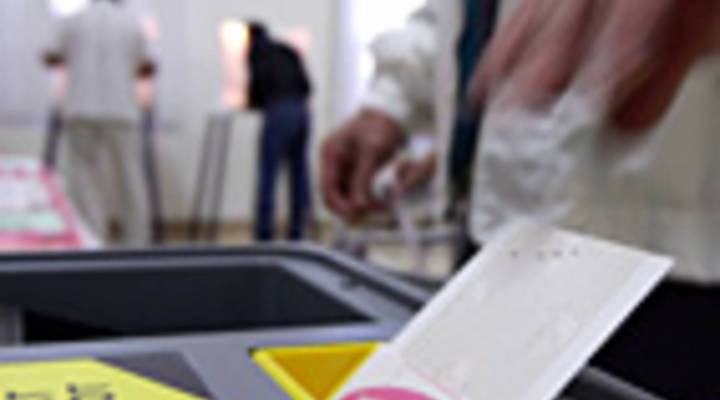
The voting tax is history
Share Now on:
The voting tax is history

TEXT OF STORY
MARK AUSTIN THOMAS: The race for the White House is still more than a year away, but we’ve already seen a number of candidates toss their hat in the ring. Only half of us will vote for the next President. What if we had to pay a fee at the polls? There was a time not long ago when that was the case. Stacey Vanek-Smith tells us about it in this installment of the History of Business.
STACEY VANEK-SMITH: In 1870, the U.S. passed the 15th Amendment. It gave African American males the right to vote, but many southern states quickly put barriers in place to prevent that.
The poll tax required people to pay money to vote, unless their ancestors had voted in the years before the Civil War.
Almost 100 years later Martin Luther King took up the issue, protesting Alabama’s efforts to control the polls.
MARTIN LUTHER KING, JR: We are assembled here today to reaffirm our determination to gain the right to vote in Selma and Dallas County and all over the state of Alabama.
This week back in 1964, the federal government ratified the 24th Amendment, which outlawed the poll tax and other laws like it.
I’m Stacey Vanek-Smith.
There’s a lot happening in the world. Through it all, Marketplace is here for you.
You rely on Marketplace to break down the world’s events and tell you how it affects you in a fact-based, approachable way. We rely on your financial support to keep making that possible.
Your donation today powers the independent journalism that you rely on. For just $5/month, you can help sustain Marketplace so we can keep reporting on the things that matter to you.











